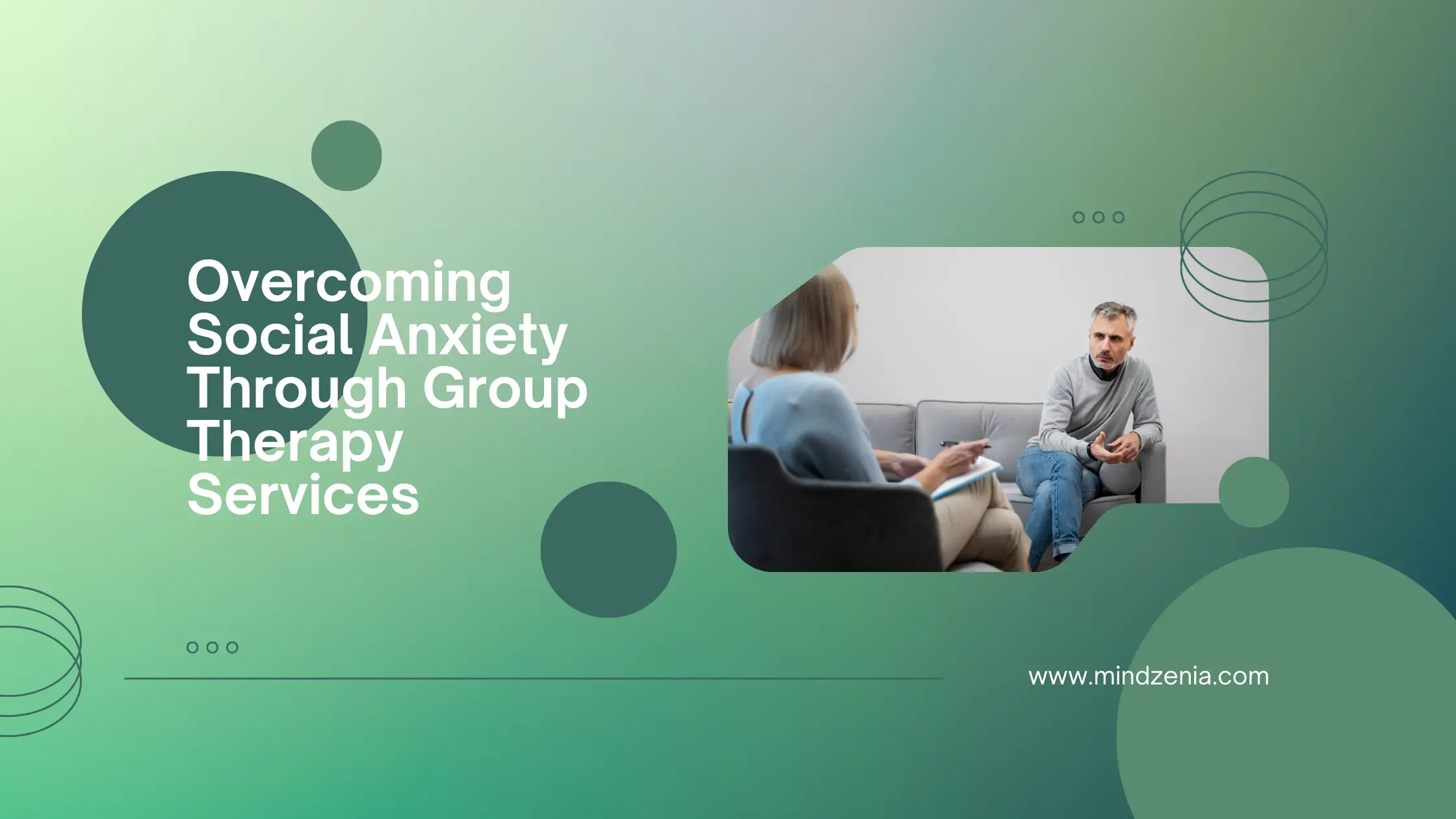Overcoming Social Anxiety Through Group Therapy Services
It is particularly unfortunate that social anxiety can be so severe and overwhelming that it interferes with everyone sphere of life social and occupational. It is characterised by an exaggerated anxiety where one is prone to avoid any situation that might make them be deemed as gay or vulnerable to mockery. Outpatient Group Therapy Services represents one of the most valuable and efficient treatment modalities to address social anxiety having an opportunity to share one’s experiences with other people, learn and implement applicable methods of coping with stressors governing social interactions, and practice social skills with other group members. Here’s how and how group therapy can assist the affected persons and assist them to restore their self-confidence in social related activities.
Understanding Social Anxiety
Social phobia which is also referred to as social anxiety disorder entails the irrational fear of being evaluated negatively by other people. This fear results in such forms of precaution as staying away from events, extreme anxiety before events, and even marked signs of physiological anxiety such as perspiring, trembling, and a racing heartbeat. To many, SAD is disabling, and the sufferers can hardly perform tasks that are considered normal by many people.
In this case, the following represents the advantages of group therapy services:
Out patient / group therapy services involve a form of therapeutic process by which individuals suffering from a similar problem assemble. Here are some key benefits of group therapy for social anxiety:
Shared Experiences
What is more important is that the participants of the group therapy, are informed very quickly they are not the only ones going through what they are going through. Listening to the stories other people, who have the same issues with social anxiety, can help to feel valued. It benefits in managing patient’s loneliness and sexual embarrassment as they are provided with a sense of support and acceptance.
Peer Support
Concerning the group setting, it is apparent that; one comes with an inherent support structure. To aid their fellow members, they give support and reciprocate encouragement and congratulation and also empathy or acknowledgement. This kind of support from peers can effectively motivate people to remain loyal to the therapeutic processes.
Exposure to Social Situations
Group therapy creates conditions in which one can use real-life situations but in a more controlled manner. Hence, role play and other activities that simulate the actual social environment are frequently used by the therapists to help participants enhance their confidence while practicing social skills in a safe environment.
Learning from Others
Every member has some ideas and ways of management of the given situation. People can get to know how others have dealt with their condition and how has it worked out for them, this way they get better strategies to use in trying to deal with their condition. This collective knowledge can be much more varied, and the general gained in such a conversation can be much more valuable than in individual sessions.
Structured Approach
Patients are usually provided in groups and most the sessions are supervised under the other guidance of a therapist. It also makes it possible for the program to have refined agendas of sessions that are articulate and trustee and objectives to meet free minutes. He/She listens, provides inputs in terms of information sharing and helps in the implementation of several therapeutic tasks.
To fully appreciate the technique of group therapy for social anxiety, it is important to consider several components as follows.
Cognitive-Behavioral Techniques
Most of the GT for SA include CBT and most of them use social skills training that focuses on exposure techniques. CBT is useful in enabling an individual to change negative thought processes that is related to anxiety. Thus, during group sessions and activities, individuals are required to change what they are thinking and adapt more positive and realistic ways of thinking.
Exposure Therapy
This is because exposure to the feared social situation is one of the most critical parts of social anxiety treatment. Exposure exercises in group therapy take place in safe and structured surroundings because everyone in the group can encourage each other to continue even when scared or uncomfortable. Group participation allows participants to develop oral communication skills in the context of other people, implement casual conversation and regulate social interactions; their anxiety levels are gradually reduced as well.
Social Skills Training
Most people diagnosed with social anxiety have difficulties in certain aspects of communication. This may entitle group therapy, of which some of the components may entail social skills training involving skills as eye contact, starting conversations, and assertiveness. These skills are important when it comes to acquiring confidence and other aspects of social nature.
Mindfulness and Relaxation Techniques
It is understood that through delivering mindfulness and relaxation it is possible to manage the somatisation of anxiety. With friendly assurance, group therapy sessions can include such activities as mindfulness exercises and deep breathing as well as progressive muscle relaxation for the clients to remain calm during social interactions.
Conclusion
The above services delivery highlights conform to the assertiveness of group therapy services as an influential and constructive strategy for eliminating social anxiety. Group therapy assists participants to gain confidence and reduce their anxiety since they can share their experiences and issues, practice on how to interact with other people and learn how to manage their problems. Anyone who find him or herself facing social anxiety issues should consider availing group therapy services for constructing a better social experience.

